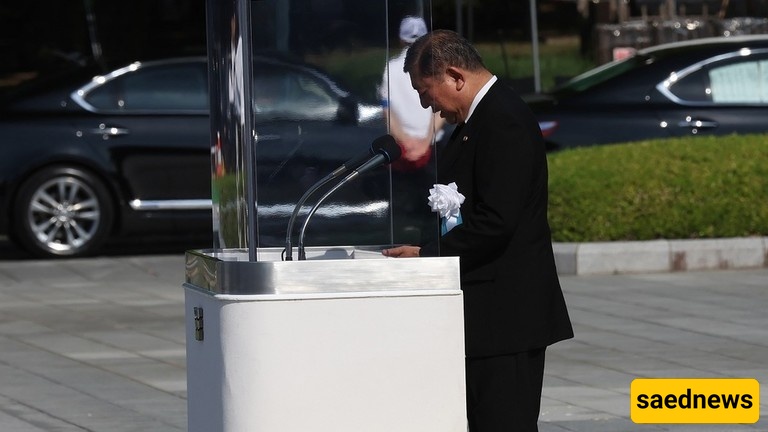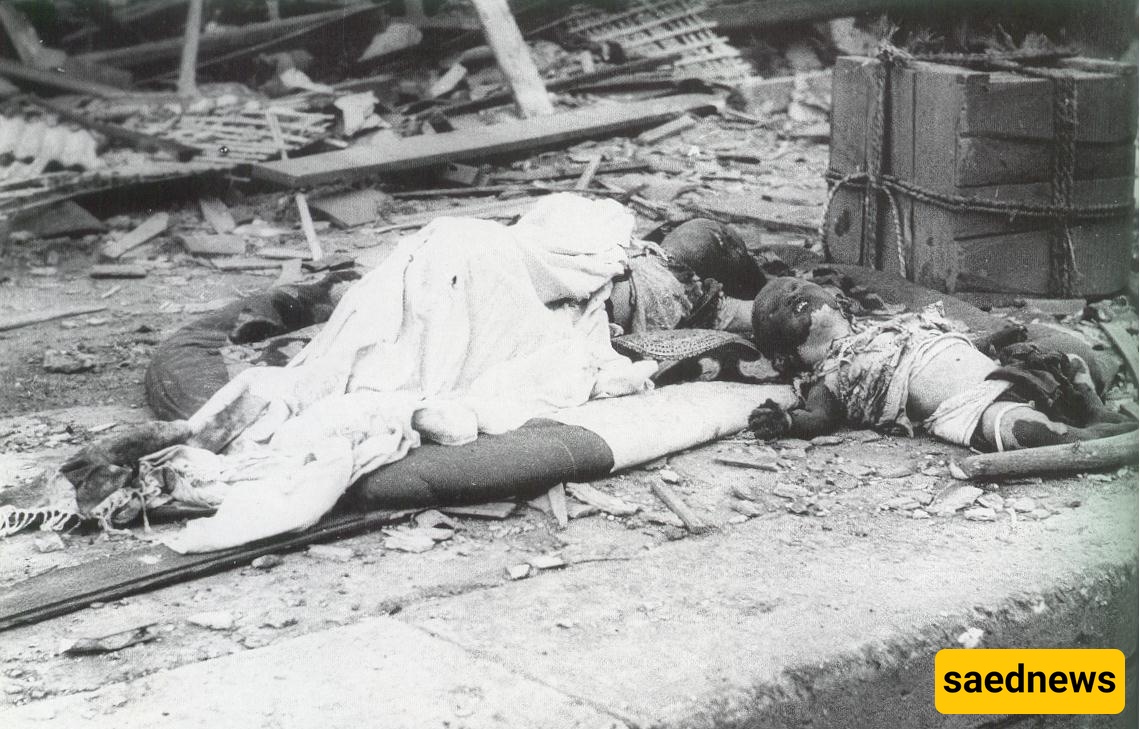SAEDNEWS: In the memorials for the atomic bombings of Hiroshima and Nagasaki, the role of the United States—as the country that dropped the bombs—is deliberately omitted or presented in a softened manner in speeches. This approach is thought-provoking and deserves closer examination.

According to Saed News, citing Russia Today, every year the world commemorates the atomic bombings of Hiroshima and Nagasaki in August—events that ended World War II and ushered in the nuclear age. However, in recent years, the memorial ceremonies in Japan have undergone changes that raise questions and invite reflection. One of the most controversial changes is the removal or downplaying of the United States’ role in deploying these atomic bombs. Although the U.S. is the primary party responsible for this historical tragedy, its name is mentioned less frequently or only very subtly in official speeches and memorial messages.
This issue goes beyond a symbolic event; it reflects the complexities of diplomacy, historical memory, and the shaping of collective narratives in the modern world.

At the 79th Hiroshima bombing anniversary ceremony held last summer, Japanese Prime Minister Fumio Kishida made no direct reference to America’s role. Instead, he emphasized the need for global peace and an end to the threat of nuclear weapons. While this stance was welcomed by the public, it also drew criticism from protesters accusing it of “distorting historical truth.”
A similar approach was observed at the Nagasaki ceremony: emphasis on peace and remembering victims, but without highlighting America’s role as the direct cause of the tragedy.
This obvious omission or implicit censorship raises important questions about the underlying goals and messages of these ceremonies.
To understand this, one must consider that post-World War II—and especially during the Cold War—Japan has been under the “nuclear umbrella” of the United States. In other words, Japan’s nuclear security is informally guaranteed by the U.S., and despite being the only country to have suffered atomic bombings, Japan is forbidden from possessing nuclear weapons.
Under these circumstances, any explicit mention of America’s role in the bombings could be seen as a major diplomatic tension that might affect the sensitive political and security relations between the two countries.
Therefore, downplaying or removing this role in memorial ceremonies serves as a soft strategy to preserve strategic relations and prevent tensions.
Another issue is how historical narratives form within societies. Every country builds its own story of important events, sometimes diverging from painful historical realities. In Japan, the focus on victims and moral messages about war and violence are central to these ceremonies.
However, omitting the role of the main perpetrator—the U.S.—can be viewed as distorting historical memory. While this approach may be ethically understandable, analysts warn it risks reproducing a flawed version of history and weakening the possibility of learning from the past.
Forgetting or censoring parts of the truth increases the risk that memorials become merely symbolic events whose core message of peace is not fully conveyed.
Decades after the Hiroshima and Nagasaki tragedies, survivors are fewer and younger generations of Japanese have little direct experience of that era. This has shifted the focus on how the event is viewed.
Younger generations tend to emphasize the future, peace, and preventing nuclear disasters rather than re-examining historical roles in detail. This shift may lead memorials to pay less attention to political dimensions and direct perpetrators, instead stressing human and ethical messages.
This raises crucial questions: Is forgetting and erasing historical realities acceptable for the sake of peace and security? Or should more complete and comprehensive narratives be passed on to future generations?
This approach in Hiroshima and Nagasaki memorials is not merely a Japanese domestic issue; it impacts international relations and global collective memory. Although nuclear issues have been central to global conflicts in recent decades, removing America’s role in these ceremonies risks obscuring power structures and their historical consequences.
Moreover, as nuclear threats re-emerge globally, precise remembrance of origins and responsibilities becomes essential. Ignoring these matters could pave the way for repeating historic mistakes.
To improve the situation, a balance must be found between recalling historical truth and emphasizing moral and human messages:
Honest and full disclosure of all roles: Speakers at ceremonies should bravely and realistically acknowledge the roles of all parties, including the U.S., to preserve complete historical memory.
Strengthening the presence of survivors and eyewitnesses: They can convey the authentic voices of events to new generations.
Integrated education: Schools and educational centers should include comprehensive teaching combining precise history, ethics, and messages of peace.
Multilateral international dialogue: Creating forums for discussion among countries helps clarify historical issues and fosters shared understanding.
The omission of America’s role in Japan’s atomic bomb memorials sits at the intersection of historical memory, politics, and diplomacy. While this approach may help maintain strategic relations between Japan and the U.S., it also risks distorting history and reducing the global community’s ability to learn from the past.
In today’s world, still facing nuclear crises and global security challenges, a more accurate and truthful remembrance of these events is needed. Balancing the recall of history’s darkest moments with a focus on peace messages is the best way to prevent repeating such tragedies.

